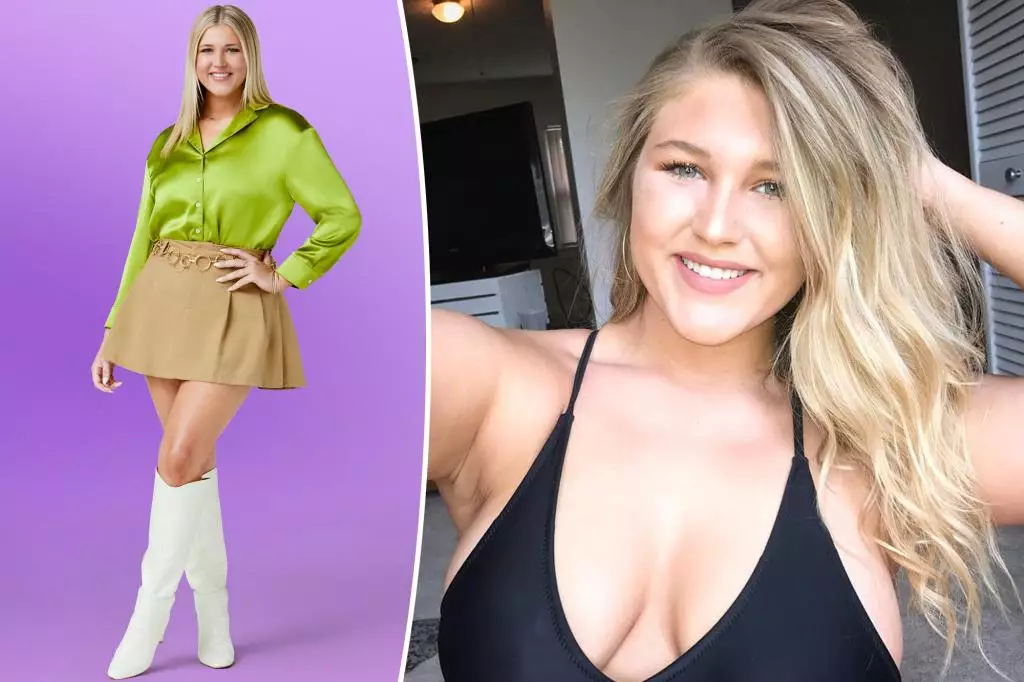The increasing popularity of reality television has led to many individuals sharing their personal struggles, but few have been as open and reflective as Hannah Jiles from Netflix’s “Love Is Blind.” In her journey to better health and self-acceptance, Jiles’ experiences encapsulate not just transformations in physical appearance but also significant mental and emotional challenges.
One of the most profound turning points for many individuals, including Jiles, was the COVID-19 pandemic. The global health crisis plunged lots of people into an overwhelming state of uncertainty, triggering emotional eating as a coping mechanism. Reflecting on her own situation, Jiles candidly admitted to gaining significant weight, peaking at 220 pounds. The candidness of her narrative allows others to see the greater picture—how external circumstances can influence personal health journeys.
Jiles’ admission of feeling “sorry for herself” during this time starkly illustrates the emotional toll that weight gain can impose. Many can resonate with the feeling of stagnation and helplessness, particularly in a world rife with stress and isolation. It takes profound self-awareness to acknowledge these emotions and proactively seek change, which is a commendable step in her journey.
In her interview, Jiles revealed decisions like undergoing liposuction prior to participating in the dating show. This choice reflects deep societal pressures that often equate beauty with self-worth. However, Jiles’ story does reveal that the surgical route was only one component of her transformative journey. This complexity illustrates the multi-faceted approach that many adopt when pursuing health changes.
After the show aired, Jiles emphasized a commitment to eating healthier and incorporating exercise into her routine. It’s notable that she recognized the importance of not just physical appearance but also mental health. Many viewers often overlook this aspect when they see a weight loss journey; it’s not merely about shedding pounds but about fostering a healthier mindset and lifestyle. Jiles’ remarks about her struggle with binge eating and the role of anxiety in her habits highlight the need for a holistic approach to health and wellness.
As she began to share her weight loss progress on social media, speculation swirled regarding the methods behind her transformation, including assumptions that she may have used medications like Ozempic. Jiles’ forthright rejection of these assumptions speaks volumes about the societal pressures surrounding body image. The notion that one must adhere to a specific type of weight loss technique to be ‘successful’ can be problematic. Her candidness about her experimentation with Ozempic, ultimately leading to a decision to discontinue it due to adverse side effects, reiterates the importance of personal choice in health journeys.
There’s often a misconception that weight loss is solely about fitting into societal beauty standards; however, Jiles demonstrates that the ultimate goal should be self-acceptance and happiness. Her declaration, “I do love myself, but I do think I could be fitter and healthier,” illustrates a pivotal mindset shift. It’s not just about looking a certain way; it’s about feeling better in one’s own skin.
While she acknowledges not being a fitness enthusiast, attending Pilates classes occasionally seems to serve as a gentle reminder that taking care of one’s body is essential, albeit in a way that aligns with personal preferences. The acknowledgment that her food choices have become more mindful is a significant step towards long-term well-being.
Hannah Jiles’ journey is a testament to resilience, the complexities of health, and the importance of emotional well-being in the pursuit of personal goals. By sharing her story, she not only fosters a sense of community with those facing similar struggles but also paves the way for open discussions surrounding body image, health, and self-acceptance. In her candid reflections, Jiles has emerged not just as a reality TV personality but as an empowering figure reminding us that the journey towards health is diverse, deeply personal, and ultimately about loving oneself—no matter the weight.

